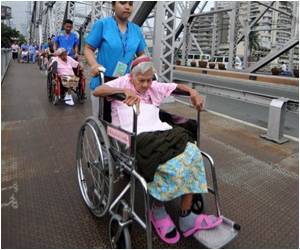New study reveals that women with chronic physical disabilities are as likely as non disabled women to say that they are currently pregnant

'Women with Chronic Physical Disabilities Do Become Pregnant…'The researchers analyzed nationally representative survey data on 48,000 U.S. women of childbearing age (18 to 49 years). Women were asked about various forms of chronic physical disability and whether they were currently pregnant. The study focused on physical health conditions causing difficulties doing certain activities; it did not address disability caused by mental or emotional problems, vision or hearing loss, or pregnancy.
Overall, 12.7 percent of women surveyed had some type of chronic physical disability. Compared to nondisabled women, those with physical disabilities were older, more likely to be black, more likely to divorced or separated, and less likely to have a high-school education. Women with disabilities were also less likely to be employed and had lower incomes.
Current pregnancy was reported by 3.5 percent of the women surveyed. The pregnancy rate for women with chronic physical disabilities was 2.0 percent, compared to 3.8 percent for nondisabled women. After adjustment for demographic and social factors, the pregnancy rate among physically disabled women was only 17 percent lower than that in nondisabled women—the difference was not statistically significant.
Women with more severe physical disabilities did have lower reported pregnancy rates. However, even in the most severe disability category, 1.5 percent of women said they were currently pregnant.
'…And Their Numbers Will Likely Grow"The study is one of the first to use population-based data to examine the reproductive choices and experiences of women with chronic physical disabilities. Dr Iezzoni and coauthors write, "Historically women with physical disabilities have confronted stigmatization concerning their reproductive and sexual health."
Advertisement
"Women with chronic physical disabilities do become pregnant, and their numbers will likely grow." Dr Iezzoni and coauthors conclude. "Whether obstetricians, nurse midwives, and other clinicians who care for pregnant women—and clinicians who provide preconception services and postpartum care—have sufficient training to serve women with chronic physical disabilities is unknown and requires additional research to explore."
Advertisement
Source-Eurekalert








